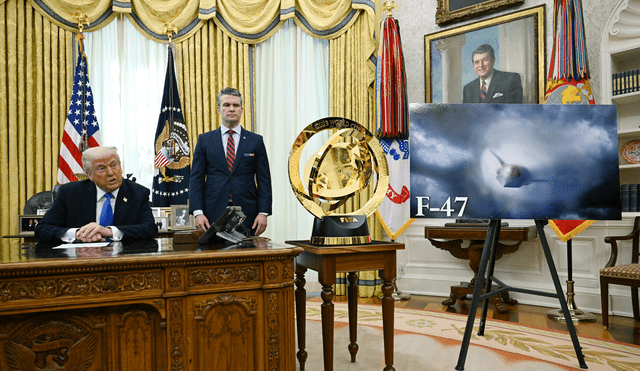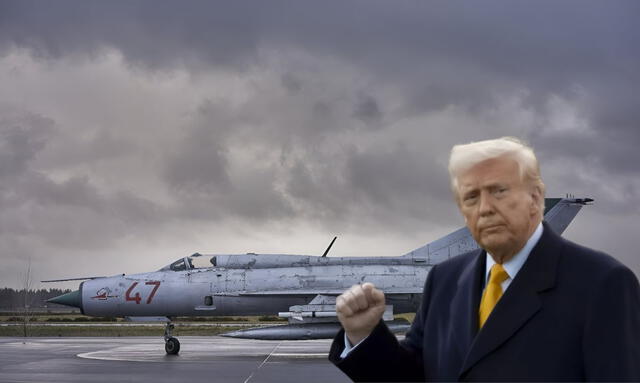Trump announces Boeing will build next-generation 'F-47' US fighter for Air Force
Donald Trump has announced that Boeing has been awarded the contract to build the US Air Force’s next-generation fighter jet, the F-47, marking a major victory for the company and a significant shift in the defense industry.

In a major win for Boeing, Donald Trump revealed that the aerospace company will design and produce the next-generation fighter jet for the US Air Force, known as the F-47. The announcement comes as part of the Next Generation Air Dominance (NGAD) program, which aims to replace the F-22 Raptor and compete with adversaries like China and Russia.
Boeing’s success in securing this multi-billion-dollar contract marks a turning point for the company, which has struggled in recent years with underperforming contracts and setbacks in its commercial aircraft production.
"America's adversaries would never see it coming", Trump said
On Friday, Donald Trump awarded Boeing the contract to build the US Air Force’s most advanced fighter jet, giving the company a significant boost. Speaking in the Oval Office alongside Defense Secretary Pete Hegseth and top Air Force leaders, Trump said the planned fighter had “been in the works for a long period of time”.
The Next Generation Air Dominance (NGAD) program will replace Lockheed Martin’s F-22 Raptor with a crewed aircraft designed to operate alongside drones in combat. While the plane’s design remains a closely guarded secret, it is likely to feature stealth capabilities, advanced sensors, and cutting-edge engines.
Boeing, headquartered in Seattle, won the deal over Lockheed Martin, resulting in a 5% increase in Boeing’s shares, while Lockheed's stock dropped nearly 6%. Reuters reported Boeing’s victory ahead of the official announcement.
Trump revealed the winner in a White House address, stating the new fighter jet will be named the F-47.
“We're confident that it massively overpowers the capabilities of any other nation ... every other plane I've seen, every one of them, and it's not even close,” he said. “It's virtually unseeable and unprecedented power. It's got the most power of any jet of its kind ever made. Maneuverability, likewise ... there's never been anything like it.”, said.

The contract, part of the Next Generation Air Dominance (NGAD) program, will replace Lockheed Martin's F-22 Raptor. Photo: Composición LR/La Región/Euro News
What it means for Boeing, this announcement?
For Boeing, this victory marks a positive shift for a company that has faced challenges both in commercial and defense sectors. It also provides a major boost to its fighter jet production business in St. Louis, Missouri.
The contract, worth over $20 billion, will ultimately lead to hundreds of billions of dollars in orders throughout the decades-long agreement.
NGAD is designed as a “family of systems,” with a sixth-generation fighter intended to compete with adversaries such as China and Russia.
Boeing has struggled in its commercial operations, especially with the production of its 737 Max jet, while its defense side has faced difficulties with underperforming contracts for mid-air refueling tankers, drones, and training jets.
The KC-46 mid-air refueling tanker program, for instance, has seen cost overruns exceeding $7 billion, and the company also suffered a $2 billion loss from a fixed-price contract to upgrade two Air Force One planes.
Lockheed, recently eliminated from the competition to build the navy’s next-generation carrier-based stealth fighter, now faces an uncertain future in the high-end fighter market following this loss.
Elon Musk, a billionaire and presidential adviser, has expressed doubts about the effectiveness of crewed high-end fighter jets, suggesting that cheaper drones are a better alternative.
While Lockheed could still challenge the award to Boeing, Trump’s announcement in a high-profile Oval Office press conference might reduce the likelihood of a public dispute from the Bethesda-based defense company.












